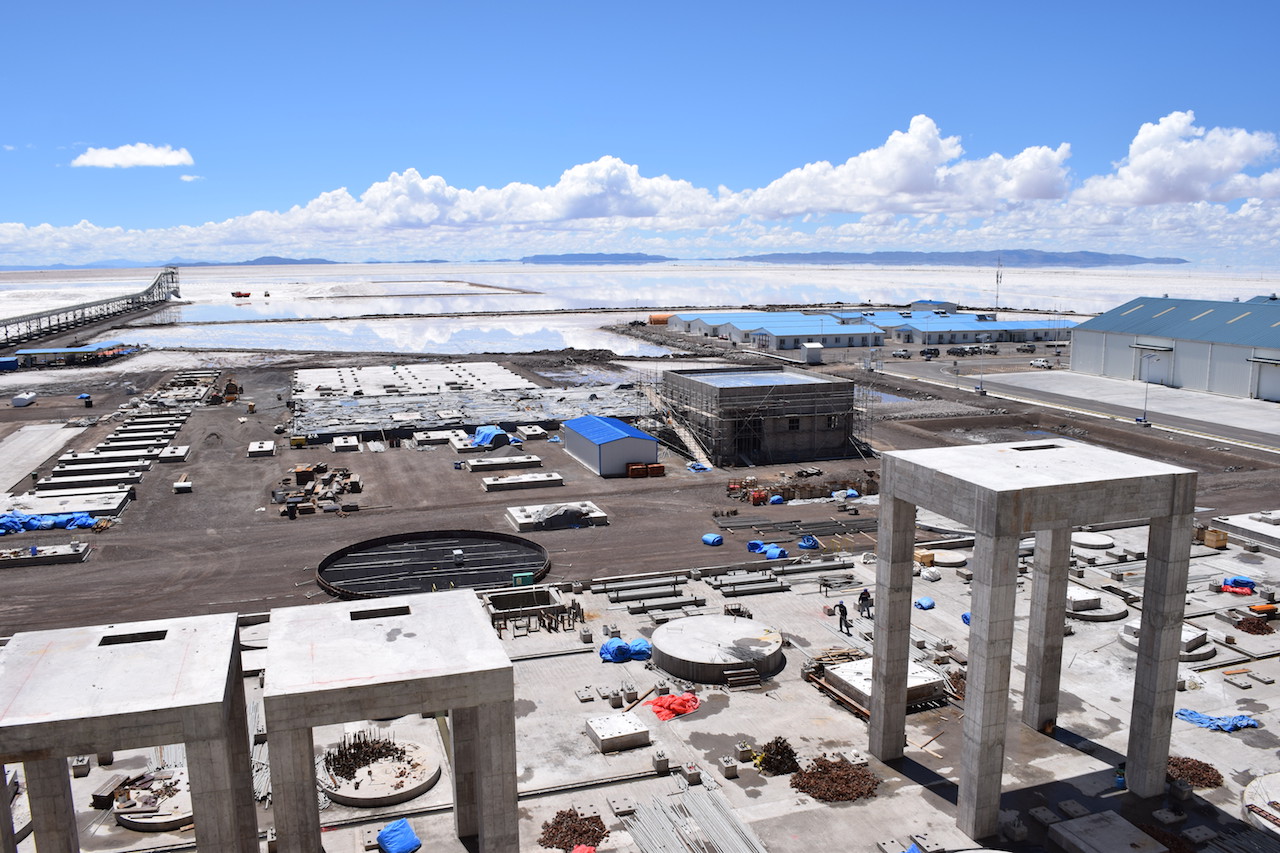RIO DE JANEIRO, BRAZIL – (EFE) Industry in Bolivian regions such as La Paz, where all social protests tend to converge because it is the seat of government, is almost an odyssey due to the high level of conflict and harmful smuggling, enemies to which the covid-19 pandemic has been added in the last year.
In 2020, the economy was hard hit by the pandemic, which in the case of industries meant a 12% drop in their sales and an 84% collapse in their profits, explained to Efe, the president of the National Chamber of Industries (CNI), Ibo Blazicevic.

Exports of industrial products fell by 16 %, and imports of capital goods fell by 32 %, with a loss of 70,000 jobs, he said.
“That means that the industry is at the moment in enormous illiquidity and high risk of insolvency,” Blazicevic lamented.
Apart from this, there are two constant difficulties for the industries: social conflicts and smuggling.
HIGH CONFLICT
Social conflicts are a constant in Bolivia, with greater intensity in some periods, such as the so-called “gas war” of 2003, which had La Paz and neighboring El Alto blockaded and surrounded for several weeks and resulted, among other things, in the migration of many industries to Santa Cruz, the country’s most prosperous region.
Others stayed, such as Laboratorios Vita, a pharmaceutical company with 85 years of experience that started with a plant in La Paz and in 2002 moved to El Alto.
Building an industry here is “a titanic effort, but the love for the city and the department is great and, despite these negative circumstances, we have also had positive situations that have helped us to stay for these 85 years,” said Vita’s general manager, Magna Cachi.
With a 32-year history, Crespal Laboratories is another industry based in El Alto that had a tough time during the social and political crisis of 2019, being close to the Senkata neighborhood, one of the strongest hotbeds of tension.
Crespal’s general manager, Raúl Crespo, recalled that they even had to evacuate the area along with their neighbors, as there was fear of an explosion at the Senkata refinery.
“We could not work for 30 days, the company was closed and at the mercy of the crime that existed at that time because we could not keep the guards because of the danger that existed,” Crespo told Efe.
Under normal circumstances, “El Alto is a fairly friendly, affordable city, where you can work with a lot of peace of mind,” however, “what makes it difficult here is the political problem,” he said.
La Paz currently has one of the highest unemployment rates in Bolivia and has lost some 92,000 jobs, Blazicevic explained.
“The fact that it is the seat of government and almost always has problems of blockades, marches, social demonstrations in the city and also in El Alto, added to an enormous informality”, which ranges between 70 and 81 %, generates a “state of chaos” that “makes it very difficult for formally established industries to operate”, he added.
PANDEMIC AND SMUGGLING
The industries were barely trying to recover from the crisis when, in early 2020, the pandemic hit and “enormously” exacerbated their problems, according to Blazicevic.
Although pharmaceutical companies were among those considered “essential”, they faced difficulties such as the bureaucracy to obtain permits for the movement of their personnel, the reduction of working hours, and the problems to move their products to other regions.
They also had problems of contagion among their personnel, which in the case of Vita meant working with 40% of their people, while Crespal operated with only 10% because the rest were sick.
Worldwide restrictions caused a shortage of raw materials, which made products more expensive for pharmaceutical companies.
In addition, smuggling, the eternal enemy of the national industry, began to flourish during the pandemic.
“Today, the drug market is monopolized by smugglers,” said Crespo, while Cachi denounced that there is also “counterfeiting” of drugs, and both called for greater action by the government.
The industrialists consider it important to complete the vaccination against covid-19 to recover some normality, for which they demanded greater effectiveness in the governmental immunization plan.
“We hope that in this year we can vaccinate more than 70 % of the Bolivian population so that we can achieve that herd immunization we need and thus return to the pre-2020 status,” said Blazicevic.
To have strong industries, it is necessary to work on conflict, improve logistics with more and better roads, and offer tax incentives, he considered.
He concluded that it is also necessary to combat smuggling and value the “Made in Bolivia” seal.

